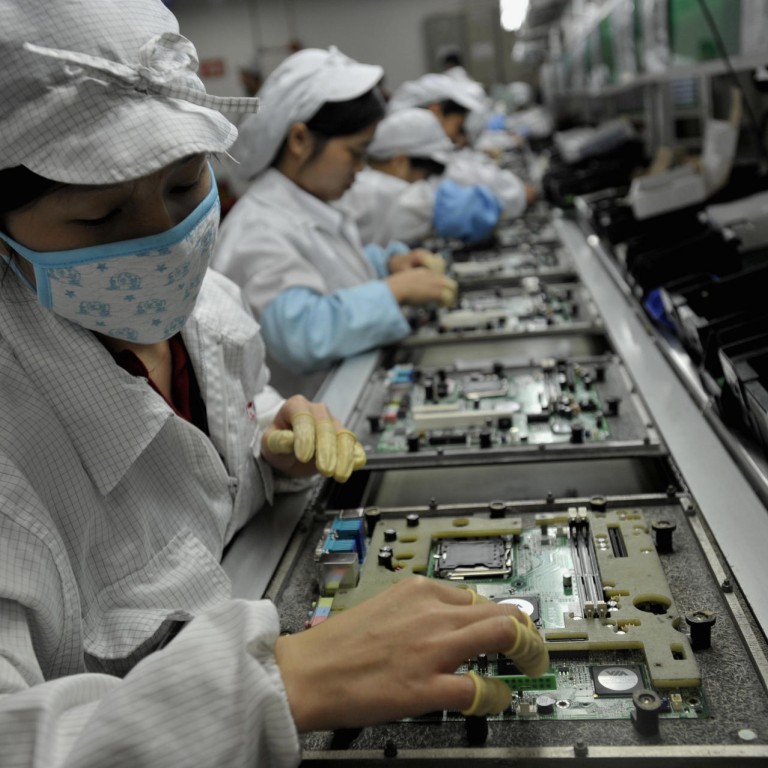
Smart money now seeking pre-IPO investments in tech start-ups
Investment firms looking for growth in innovative start-ups before they hit IPO trail, despite concerns about valuations
Lean technology start-ups - without the baggage of labour-intensive production lines - have become the favoured target of investment firms seeking to buy their way into a growth trajectory that captures wealth well before a public listing.
Paul Chan, a portfolio manager at Invesco, is among the ranks of fund managers who increasingly see the main game as getting in early with high-growth-prospect start-ups, rather than waiting their turn with initial public offerings.
Chan cites Uber Technologies, the US-based developer of a software application for booking taxis that is penetrating markets worldwide and helping to stoke investor enthusiasm for tech start-ups.
"Hon Hai Precision, the Taiwanese contract manufacturer better known as Foxconn, employs 1.3 million workers, which is equivalent to the size of active personnel in the US army," the veteran stock investor said of the company that assembles Apple's iPhones and iPads. "But the market value of publicly listed Hon Hai is less than Uber, reflecting investors' preference for fast-growing private technology firms that can create disruptive innovation."
Uber said in December it had raised funding that valued the firm at US$40 billion, vaulting it over the likes of established technology companies such as Sony and Lenovo, which have market capitalisations of US$21 billion and US$16 billion, respectively.
That valuation has propelled the app maker, in which China's dominant search engine Baidu has an undisclosed stake, into the upper ranks of technology heavyweights in terms of market worth.
Stalling growth at Samsung Electronics, the world's biggest smartphone maker, supports Chan's view that bets on newer, nimble competitors will become increasingly attractive for investment firms.
Chinese smartphone maker Xiaomi - the industry No3 whose star has grown as Samsung's fades - reached a market value of US$45 billion after the four-year-old company raised US$1.1 billion in December from investors including billionaire Yuri Milner.
The capital raised by privately held, pre-IPO technology companies in the US reached US$24.7 billion in 436 deals last year, up significantly from US$11.7 billion in 391 transactions in 2013, according to a report by CB Insights, a data tracking firm.
Robert Partridge, a managing partner at professional services firm EY, said if the scale or timing of expected rises in US interest rates differs from market assumptions, this would dim the outlook for the fancied start-ups for valuation purposes.
Traditional fund managers have moved into the pre-listing round of fundraising as growth prospects outweigh risks, and the amount of capital needed is beyond many venture capitalists' capacity, said Xuong Liu, managing director of management turnaround specialist Alvarez & Marsal in Shanghai.
Some 21 firms reached the billion-dollar milestone last year, up from eight in 2013, as hedge, mutual and sovereign wealth funds as well as private equity investors piled into the sector.
Alibaba's record-breaking US$25 billion IPO in September helped whet the appetite of investors worldwide for technology companies.
The New York-listed shares in the Hangzhou-based e-commerce giant have since gained steadily, holding above the US$100 mark at close to 50 per cent above its US$68 offer price.
"More long-only investors have flocked to technology firms after Alibaba's success, benefiting private companies like Xiaomi and Uber," said Shaun Rein, managing director at China Market Research Group, a Shanghai-based consulting firm.
Staggering growth potential is the most compelling draw for investors.
Xiaomi, which doubled its revenue to US$12 billion in 2014, seeks to expand aggressively in overseas markets as its founder Lei Jun sets out to beat Apple and Samsung by offering high-end electronics at cheap prices.
Rein said long-only funds' participation in pre-listing fund-raising activities is seen as an endorsement of the ambitious business plans of fast-growing technology firms, while ensuring that the money managers receive a meaningful holding before these companies go public.
"With marquee investors like China Investment Corp and Temasek backing them, it guarantees success even though valuations of the technology firms don't make sense," said Rein, referring to the Chinese and Singaporean sovereign wealth funds.

